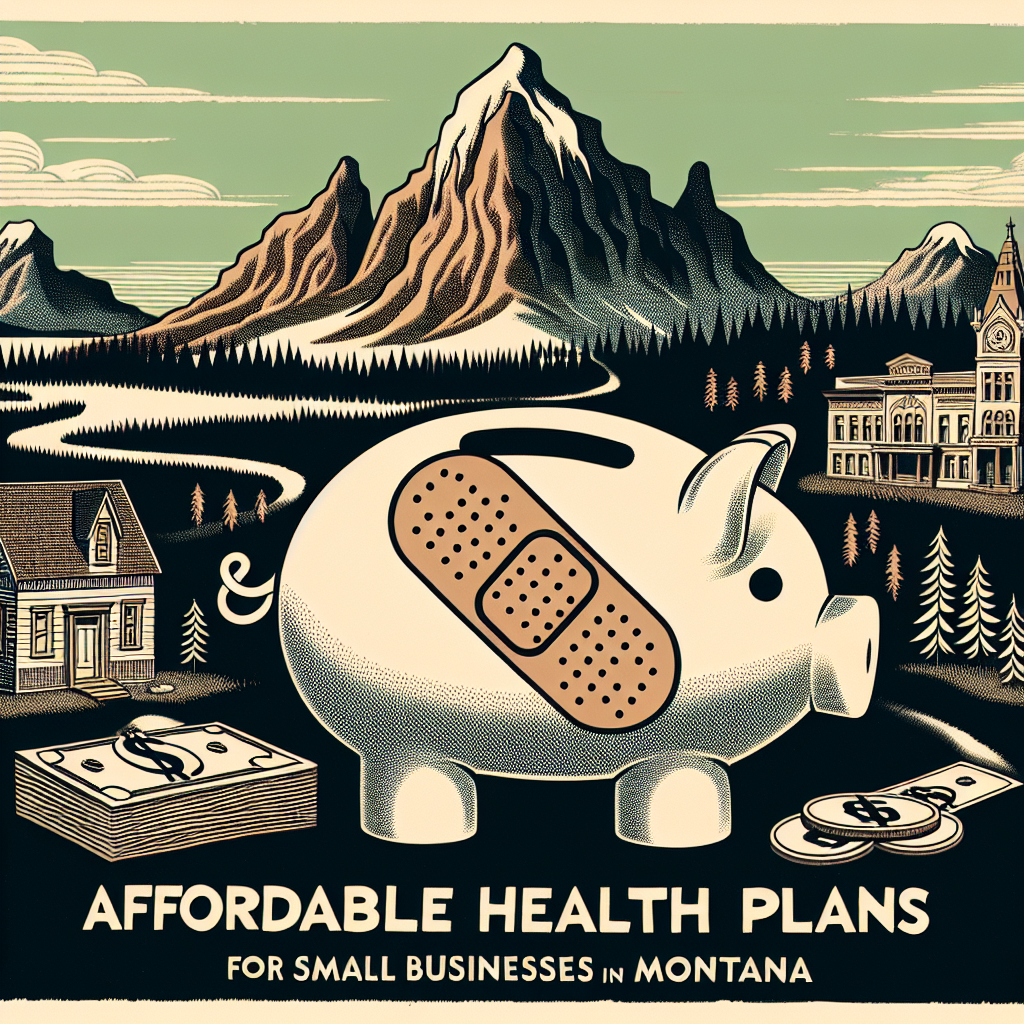Filed under Business Insurance on
Affordable Health Plans for Montana Small Businesses

Small businesses are the lifeblood of Montana's economy, contributing to the vibrant and dynamic culture of this great state. However, one of the persistent challenges that many small business owners face is providing affordable health coverage to their employees. Navigating the landscape of health insurance can be daunting, but with the right information and guidance, small businesses can find budget-friendly solutions that ensure employees have access to essential healthcare services.
Understanding the Importance of Health Plans for Small Businesses in Montana
Offering affordable health plans is not just a matter of compliance; it's a strategic business decision. Employers who provide health insurance often enjoy higher employee satisfaction, improved retention rates, and a more productive workforce. In Montana, where the small business sector is flourishing, offering competitive health benefits can set a company apart in attracting and retaining top talent.
The Current Health Insurance Landscape in Montana
In recent years, Montana has seen a shift towards more accessible health insurance options aimed at small businesses. With state and federal initiatives in play, small businesses now have access to a wider array of affordable health plans. According to recent industry reports, the adoption of these plans has been steadily increasing, reflecting a positive trend in small business healthcare coverage within the state.
Exploring Affordable Health Plans: Key Options for Montana Small Businesses
There are several types of affordable health plans available for small businesses in Montana. Each plan type comes with its own set of benefits and considerations, making it crucial for business owners to assess their specific needs and resources before deciding.
1. Health Maintenance Organizations (HMOs)
Health Maintenance Organizations are often a cost-effective choice for small businesses. HMOs operate through a specific network of doctors and healthcare providers, focusing on preventative care to keep costs low for businesses and their employees. With an HMO, employees typically select a Primary Care Physician (PCP) who manages their healthcare needs and provides referrals to specialists when necessary.
2. Preferred Provider Organizations (PPOs)
Preferred Provider Organizations offer more flexibility than HMOs, allowing employees to seek care outside of a designated network, although at a higher cost. This flexibility might come with higher premiums, but it suits companies looking for a balance between cost and employee choice. This option is popular among businesses that prioritize providing a wide selection of healthcare providers.
3. Health Savings Accounts (HSAs) Paired with High-Deductible Health Plans (HDHPs)
HSAs are savings accounts that allow employees to set aside pre-tax money to pay for qualified medical expenses. When paired with high-deductible health plans, they offer a dual advantage: lower premiums for the employer and a potential savings tool for employees. These plans encourage employees to make informed healthcare choices, which can ultimately lead to reduced costs.
4. Small Business Health Options Program (SHOP)
Under the Affordable Care Act, the SHOP marketplace was designed specifically for small businesses. This program offers a range of affordable health plans, contributing toward premium costs if eligible, and offers tax benefits for small businesses. Montana small businesses can explore this option to find comprehensive coverage that meets their budget and their employees' needs.
Maximizing Benefits with Affordable Health Plans
Choosing the right affordable health plan is paramount, but equally important is understanding how to maximize the benefits. Here are strategies to ensure that your business and employees get the most out of your health coverage plan:
- Educate Employees: Offer workshops or informational sessions to help employees understand their health plan, encouraging them to take full advantage of in-network services and wellness programs.
- Incorporate Wellness Programs: Many affordable health plans include wellness incentives such as gym membership discounts, smoking cessation programs, or stress management workshops, which can significantly enhance employee health and morale.
- Regularly Review Plans: Healthcare needs can change, so it's beneficial to annually review your plan and coverage options to ensure they still meet your company's needs.
- Leverage Tax Credits: If your business qualifies, take advantage of the Small Business Health Care Tax Credit offered through the Affordable Care Act, which can help offset premium costs.
Staying Informed: The Role of Industry Trends and Insights
Remaining informed about industry trends is crucial for Montana small businesses trying to navigate affordable health plans. The healthcare industry is in a constant state of flux, with new regulations, technological advancements, and innovative insurance products emerging regularly. Business owners should consider establishing a relationship with a reliable insurance broker or consultant who can provide insights and up-to-date information.
Expert Opinions: What Do The Professionals Say?
Expert opinions in the industry provide valuable perspective for small business owners in Montana. John Smith, a seasoned insurance broker based in Billings, advises, "For small businesses, the key is to not just look at the bottom line but to consider how a health plan fits into your overall business strategy. Affordable plans are out there, and they can be a win-win for both the employer and employees when chosen wisely." Smith emphasizes exploring both traditional and innovative insurance products to find the perfect fit.
Conclusion: Taking the Next Step Towards Affordable Health Coverage
For Montana small businesses aiming to provide affordable health plans, the journey is about more than just cost—it’s about enhancing your competitive edge, supporting your workforce, and securing your business’s future. By exploring the diverse health insurance options available, small businesses can find solutions that align with their financial capabilities while fulfilling their commitment to employee wellbeing.
Whether it’s through traditional HMOs, flexible PPOs, cost-effective HSAs, or innovative SHOP marketplace options, affordable health plans are within reach. The key lies in understanding your specific business needs, staying informed about industry trends, and seeking expert advice to make an informed decision. As small businesses in Montana embrace these options, they contribute to healthier communities and stronger, more resilient local economies.





